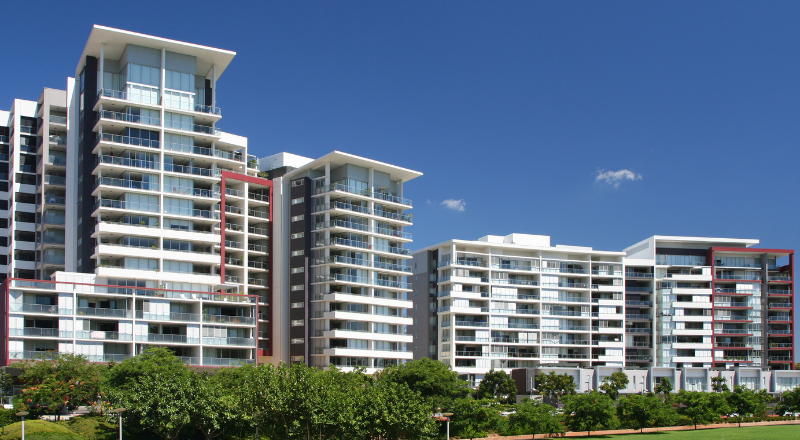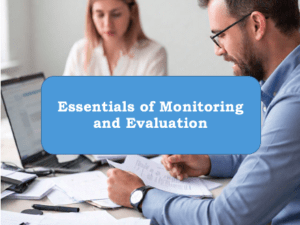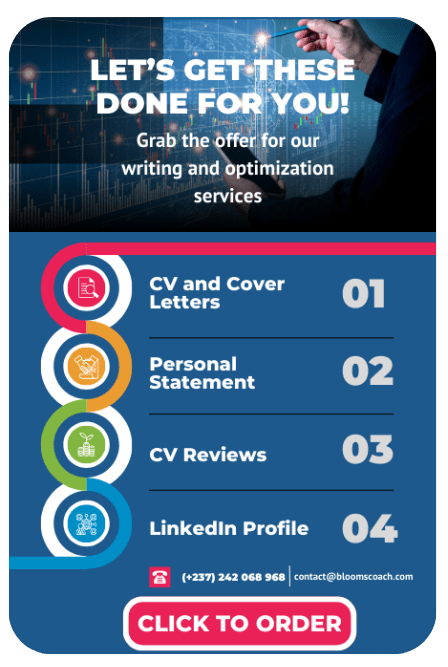Mastering Facility Management
- Description
- Curriculum
- Reviews
- Grade
This diploma-level course provides students with the knowledge, skills, and competencies required to effectively manage facilities across various sectors. The program balances theoretical foundations with practical applications to prepare graduates for careers in facility management.
Program Learning Outcomes
Upon completion, students will be able to:
- Apply facility management principles to maintain and optimize building performance
- Implement sustainability and energy efficiency measures in facilities
- Manage facility operations, maintenance, and service contracts
- Develop and execute emergency preparedness and business continuity plans
- Utilize facility management technologies and information systems
- Apply relevant regulations, codes, and standards to facility operations
- Demonstrate effective communication and stakeholder management skills
-
1History and evolution of facility management10 mins
Welcome to your first lesson! Here, you'll embark on a journey through time to understand how facility management (FM) has transformed from a rudimentary necessity into a sophisticated, strategic discipline. Recognizing its evolution will help you appreciate the depth and breadth of your future role.
-
2Core competencies in facility management12 minsThis lesson is locked because you haven't completed the previous one yet. Finish the previous lesson to unlock this one.
As a successful facility manager, you'll need a diverse skill set. It's not just about knowing how buildings work; it's also about managing people, finances, and information. This lesson will outline the essential core competencies you must cultivate to excel in this dynamic field.
-
3Facility management standards (ISO 41001, IFMA guidelines)10 minsThis lesson is locked because you haven't completed the previous one yet. Finish the previous lesson to unlock this one.
To ensure consistency, quality, and strategic alignment, the facility management industry has developed various standards and guidelines. In this lesson, you'll learn about key frameworks like ISO 41001 and the guidelines provided by the International Facility Management Association (IFMA), which will serve as benchmarks for your professional practice.
-
4Facility typologies and their specific requirements11 minsThis lesson is locked because you haven't completed the previous one yet. Finish the previous lesson to unlock this one.
Not all buildings are created equal, and neither are their management needs. In this lesson, you'll explore various facility typologies and understand the unique demands each type places on you as a facility manager. Recognizing these differences is crucial for tailoring your strategies and ensuring optimal performance.
-
5Role of the facility manager in organizational success12 minsThis lesson is locked because you haven't completed the previous one yet. Finish the previous lesson to unlock this one.
The role of a facility manager has evolved dramatically from simple caretaker to a strategic partner within an organization. In this lesson, you'll learn how your position directly contributes to business objectives, employee well-being, and overall organizational success. Understanding this strategic impact will empower you to advocate for your initiatives and demonstrate your value.
-
6Career paths and professional development in facility management11 minsThis lesson is locked because you haven't completed the previous one yet. Finish the previous lesson to unlock this one.
The field of facility management offers a dynamic and rewarding career with diverse opportunities for growth. In this lesson, you'll explore various career paths within FM and understand the importance of continuous professional development to advance your expertise and leadership capabilities. This knowledge will help you map out your own career trajectory.
-
7Facility Management Module 1 Quiz5 questionsThis lesson is locked because you haven't completed the previous one yet. Finish the previous lesson to unlock this one.Now that you've completed Module 1, it's time to assess your understanding of the foundational concepts in facility management. This quiz will help you consolidate your knowledge and identify any areas where you might need to review the material. Quiz Instructions: The quiz will consist of multiple-choice and true/false questions. Read each question carefully before selecting your answer. This quiz is designed to reinforce your learning, so don't worry if you don't get everything perfect on the first try. Use it as an opportunity to review!
-
8Building envelope and structural systems12 minsThis lesson is locked because you haven't completed the previous one yet. Finish the previous lesson to unlock this one.
Welcome to Lesson 8, where we begin our exploration of the physical foundation of any facility: the building envelope and structural systems. Understanding these core elements is vital for you as a facility manager, as they directly impact building integrity, energy efficiency, and occupant comfort.
-
9HVAC systems and indoor air quality11 minsThis lesson is locked because you haven't completed the previous one yet. Finish the previous lesson to unlock this one.
Beyond the building's shell, the internal environment is critical for occupant comfort, health, and productivity. This lesson focuses on Heating, Ventilation, and Air Conditioning (HVAC) systems and their direct impact on indoor air quality (IAQ). As a facility manager, you play a crucial role in ensuring these systems operate efficiently and effectively.
-
10Electrical systems and power management10 minsThis lesson is locked because you haven't completed the previous one yet. Finish the previous lesson to unlock this one.
Electricity is the lifeblood of modern facilities, powering everything from lighting and computers to essential HVAC systems and security. In this lesson, you'll gain a foundational understanding of electrical systems and learn key strategies for power management, ensuring reliability, safety, and efficiency.
-
11Plumbing and water management systemsText lessonThis lesson is locked because you haven't completed the previous one yet. Finish the previous lesson to unlock this one.
Water is essential for any facility, serving purposes from sanitation and hygiene to cooling systems and fire suppression. This lesson will introduce you to the fundamental components of plumbing and water management systems, and guide you on how to maintain them efficiently, ensure water quality, and prevent costly damage.
-
12Fire protection and life safety systems10 minsThis lesson is locked because you haven't completed the previous one yet. Finish the previous lesson to unlock this one.
Ensuring the safety of your occupants is paramount, and a robust fire protection and life safety system is at the core of this responsibility. In this lesson, you will learn about the key components of these critical systems and your role in their maintenance, testing, and compliance with regulations.
-
13Preventive and predictive maintenance strategies11 minsThis lesson is locked because you haven't completed the previous one yet. Finish the previous lesson to unlock this one.
As a facility manager, you are responsible for keeping your building systems operating reliably and efficiently. This lesson introduces you to two cornerstone maintenance strategies: Preventive Maintenance (PM) and Predictive Maintenance (PdM). Understanding and implementing these strategies will allow you to minimize downtime, extend asset lifespan, and optimize operational costs.
-
14Facility Management Module 2 Quiz6 questionsThis lesson is locked because you haven't completed the previous one yet. Finish the previous lesson to unlock this one.
-
15Principles of space planning and optimization12 minsThis lesson is locked because you haven't completed the previous one yet. Finish the previous lesson to unlock this one.
Welcome to Lesson 15! Here, you'll delve into the foundational principles of space planning and optimization. This isn't just about rearranging furniture; it's about strategically designing and managing your facility's layout to enhance productivity, support business goals, and provide an effective environment for all occupants. As a facility manager, your ability to optimize space directly impacts an organization's efficiency and costs.
-
16Space measurement standards and methodologies10 minsThis lesson is locked because you haven't completed the previous one yet. Finish the previous lesson to unlock this one.
As a facility manager, accurately measuring and documenting space is fundamental to effective planning, financial reporting, and communication with stakeholders. This lesson will introduce you to common space measurement standards and methodologies, enabling you to speak the same language as real estate professionals and ensure consistency in your data.
-
17Workspace design and office layouts10 minsThis lesson is locked because you haven't completed the previous one yet. Finish the previous lesson to unlock this one.
The design of your workspace profoundly impacts employee productivity, collaboration, and satisfaction. In this lesson, you'll explore various office layout types and workspace design considerations, learning how to select and implement designs that best support your organization's culture and operational needs. Your choices here directly shape the daily experience of your facility's occupants.
-
18Space allocation and programming11 minsThis lesson is locked because you haven't completed the previous one yet. Finish the previous lesson to unlock this one.
Beyond just designing layouts, you, as a facility manager, are responsible for the strategic allocation and programming of space. This involves determining who gets how much space and what type of space, based on organizational needs, departmental functions, and future growth. Effective space allocation is critical for optimizing resources and supporting business operations.
-
19Move management and churn planning12 minsThis lesson is locked because you haven't completed the previous one yet. Finish the previous lesson to unlock this one.
Relocating people, departments, or entire facilities is a complex undertaking, often fraught with potential disruptions. As a facility manager, you'll be central to Move Management, ensuring seamless transitions with minimal impact on productivity. You'll also learn about Churn Planning, which addresses the ongoing, smaller-scale changes within your facility.
-
20Occupancy studies and utilization analysis11 minsThis lesson is locked because you haven't completed the previous one yet. Finish the previous lesson to unlock this one.
As a facility manager, one of your most powerful tools for strategic space management is the ability to conduct occupancy studies and utilization analysis. This lesson will teach you how to gather data on how your spaces are actually being used, identify inefficiencies, and make data-driven decisions to optimize your facility's footprint.
-
21Computer-Aided Facility Management (CAFM) tools10 minsThis lesson is locked because you haven't completed the previous one yet. Finish the previous lesson to unlock this one.
In the modern facility management landscape, manual processes are simply not efficient enough. This lesson introduces you to Computer-Aided Facility Management (CAFM) tools, powerful software systems that integrate various aspects of FM to help you manage space, assets, maintenance, and more, all from a centralized platform. Embracing CAFM will significantly enhance your operational efficiency and strategic decision-making.
-
22Facility Management Module 3 Quiz6 questionsThis lesson is locked because you haven't completed the previous one yet. Finish the previous lesson to unlock this one.
-
23Asset lifecycle management11 minsThis lesson is locked because you haven't completed the previous one yet. Finish the previous lesson to unlock this one.
Welcome to Lesson 23! Here, you'll learn about Asset Lifecycle Management (ALM), a holistic approach to managing your facility's assets from the moment you acquire them until they are disposed of or replaced. Understanding ALM is vital because it helps you make informed decisions about purchasing, maintaining, and replacing equipment, ultimately saving your organization money and ensuring operational continuity.
-
24Maintenance management strategies11 minsThis lesson is locked because you haven't completed the previous one yet. Finish the previous lesson to unlock this one.
Building on our understanding of Asset Lifecycle Management, this lesson dives deeper into specific maintenance strategies you can employ. While we've touched on Preventive and Predictive Maintenance in Module 2, here you'll learn how to choose the right strategy for different assets and understand the concept of Reliability-Centered Maintenance (RCM). Your ability to apply the correct maintenance strategy will directly impact asset uptime, safety, and operational costs.
-
25Work order management systems12 minsThis lesson is locked because you haven't completed the previous one yet. Finish the previous lesson to unlock this one.
Effective maintenance isn't just about strategy; it's about execution. This lesson introduces you to Work Order Management Systems, critical tools that streamline how maintenance requests are received, tracked, assigned, and completed. As a facility manager, mastering these systems will improve communication, accountability, and the efficiency of your maintenance operations.
-
26Inventory and spare parts management11 minsThis lesson is locked because you haven't completed the previous one yet. Finish the previous lesson to unlock this one.
As a facility manager, you're not just responsible for fixing things; you also need to ensure you have the right parts to do the fixing! This lesson focuses on Inventory and Spare Parts Management, a critical aspect of maintenance that directly impacts your ability to minimize downtime, control costs, and ensure your team has what they need to work efficiently.
-
27Equipment reliability and performance12 minsThis lesson is locked because you haven't completed the previous one yet. Finish the previous lesson to unlock this one.
As a facility manager, you're not just fixing equipment; you're ensuring it reliably performs its intended function. This lesson focuses on Equipment Reliability and Performance, teaching you how to analyze equipment behavior, identify chronic issues, and implement strategies to improve uptime and efficiency. A reliable facility leads to lower costs, happier occupants, and more successful operations.
-
28Building condition assessments11 minsThis lesson is locked because you haven't completed the previous one yet. Finish the previous lesson to unlock this one.
As a facility manager, you need to have a clear picture of the physical state of your facility. This lesson introduces Building Condition Assessments (BCAs), systematic evaluations that identify and document the current condition of your building's various components. BCAs are essential tools for capital planning, prioritizing maintenance, and ensuring long-term asset value.
-
29Computerized Maintenance Management Systems (CMMS)10 minsThis lesson is locked because you haven't completed the previous one yet. Finish the previous lesson to unlock this one.
Building on our discussions about work orders, asset management, and maintenance strategies, this lesson focuses on the central nervous system for all these activities: the Computerized Maintenance Management System (CMMS). As a facility manager, a CMMS is one of your most powerful tools for automating, tracking, and optimizing all your maintenance operations.
-
30Facility Management Module 4 Quiz7 questionsThis lesson is locked because you haven't completed the previous one yet. Finish the previous lesson to unlock this one.
-
31Outsourcing vs. insourcing considerations12 minsThis lesson is locked because you haven't completed the previous one yet. Finish the previous lesson to unlock this one.
Welcome to Lesson 31! This lesson addresses a fundamental strategic decision for any facility manager: whether to outsource (contract out to a third party) or insource (manage with in-house staff) various facility services. This decision significantly impacts operational control, cost, quality, and your organization's overall structure. There's no one-size-fits-all answer; the optimal choice depends on your specific facility, organizational culture, budget, and strategic goals.
-
32Service level agreements and KPIs12 minsThis lesson is locked because you haven't completed the previous one yet. Finish the previous lesson to unlock this one.
Welcome to Lesson 32! This lesson is crucial for any facility manager who relies on external service providers: understanding and effectively utilizing Service Level Agreements (SLAs) and Key Performance Indicators (KPIs). These tools are the backbone of successful vendor management, ensuring that services are delivered to the agreed-upon standards, performance is measurable, and accountability is maintained.
-
33Vendor selection and management11 minsThis lesson is locked because you haven't completed the previous one yet. Finish the previous lesson to unlock this one.
Welcome to Lesson 33! This lesson focuses on two critical processes for facility managers: Vendor Selection and Vendor Management. Given that a significant portion of facility services are outsourced, your ability to identify, evaluate, contract with, and effectively manage external service providers directly impacts the quality, cost, and efficiency of your facility's operations.
-
34Quality control and performance monitoring10 minsThis lesson is locked because you haven't completed the previous one yet. Finish the previous lesson to unlock this one.
Welcome to Lesson 34! This lesson is about two intertwined and essential functions for facility managers: Quality Control and Performance Monitoring. Once you've selected your vendors and services are underway, these processes ensure that what was promised in the contract (the SLAs and KPIs) is actually delivered. Effective quality control and monitoring are vital for maintaining standards, ensuring occupant satisfaction, identifying issues proactively, and driving continuous improvement.
-
35Integrated facility services12 minsThis lesson is locked because you haven't completed the previous one yet. Finish the previous lesson to unlock this one.
Welcome to Lesson 35! This lesson explores the concept of Integrated Facility Services (IFS), a growing trend in facility management that aims to streamline the delivery of multiple facility services under a single contract with a single provider. This approach offers numerous potential benefits, but also presents unique management challenges that you, as a facility manager, need to understand.
-
36Customer service principles in facility management11 minsThis lesson is locked because you haven't completed the previous one yet. Finish the previous lesson to unlock this one.
Welcome to Lesson 36! This lesson emphasizes a crucial, yet often underestimated, aspect of effective facility management: Customer Service Principles. While FM is about managing physical assets and services, its ultimate purpose is to support the people who occupy and use those facilities. Providing excellent customer service is paramount to occupant satisfaction, building positive relationships, and demonstrating the value of the FM function to the organization.
-
37Cleaning and janitorial services management10 minsThis lesson is locked because you haven't completed the previous one yet. Finish the previous lesson to unlock this one.
Welcome to Lesson 37! This lesson focuses specifically on the critical facility service of Cleaning and Janitorial Services Management. While often viewed as a basic operational necessity, the effective management of these services is fundamental to maintaining a healthy, safe, productive, and aesthetically pleasing environment. As a facility manager, your oversight directly impacts occupant well-being, the longevity of your assets, and your organization's professional image.
-
38Facility Management Module 5 Quiz10 questionsThis lesson is locked because you haven't completed the previous one yet. Finish the previous lesson to unlock this one.
-
39Green building principles and certifications (LEED, BREEAM, etc.)12 minsThis lesson is locked because you haven't completed the previous one yet. Finish the previous lesson to unlock this one.
Welcome to Lesson 39! This lesson introduces a critical area in modern facility management: Green Building Principles and Certifications. As global awareness of environmental impact grows, facility managers play a pivotal role in designing, operating, and maintaining buildings that are environmentally responsible, resource-efficient, and healthy for their occupants. Understanding green building concepts and the various certification systems is essential for achieving these goals.
-
40Energy efficiency measures and audits11 minsThis lesson is locked because you haven't completed the previous one yet. Finish the previous lesson to unlock this one.
Welcome to Lesson 40! This lesson delves into the critical topic of Energy Efficiency Measures and Audits in facility management. Energy consumption is often the largest operational cost for buildings and a significant contributor to carbon emissions. Proactive energy management, through efficiency measures and systematic audits, offers substantial opportunities for cost savings, environmental responsibility, and improved building performance.
-
41Waste management and recycling programs11 minsThis lesson is locked because you haven't completed the previous one yet. Finish the previous lesson to unlock this one.
Welcome to Lesson 41! This lesson focuses on Waste Management and Recycling Programs within facility management. Effective waste management is a cornerstone of sustainable operations, impacting environmental responsibility, regulatory compliance, and operational costs. As a facility manager, you are responsible for developing, implementing, and overseeing programs that minimize waste generation, maximize recycling and reuse, and ensure proper disposal of all materials.
-
42Water conservation strategies10 minsThis lesson is locked because you haven't completed the previous one yet. Finish the previous lesson to unlock this one.
Welcome to Lesson 42! This lesson focuses on Water Conservation Strategies in facility management. Water is a precious and finite resource, and its efficient use in buildings is increasingly important for environmental stewardship, operational cost reduction, and regulatory compliance. As a facility manager, you have a direct impact on reducing your organization's water footprint.
-
43Sustainable procurement practices11 minsThis lesson is locked because you haven't completed the previous one yet. Finish the previous lesson to unlock this one.
Welcome to Lesson 43! This lesson explores Sustainable Procurement Practices within facility management. Sustainable procurement, also known as green procurement or ethical procurement, involves integrating environmental and social considerations into the purchasing decisions for goods and services. As a facility manager, your purchasing choices have a significant ripple effect on your organization's environmental impact, supply chain ethics, and overall sustainability performance.
-
44Carbon footprint reduction12 minsThis lesson is locked because you haven't completed the previous one yet. Finish the previous lesson to unlock this one.
Welcome to Lesson 44! This lesson focuses on Carbon Footprint Reduction within facility management. The carbon footprint is a measure of the total greenhouse gas (GHG) emissions caused directly and indirectly by an organization, building, product, or individual. As FM is a significant consumer of energy and generator of waste, facilities play a crucial role in an organization's overall carbon footprint. Reducing this footprint is vital for mitigating climate change, enhancing corporate reputation, and often, achieving significant cost savings.
-
45Environmental management systems11 minsThis lesson is locked because you haven't completed the previous one yet. Finish the previous lesson to unlock this one.
Welcome to Lesson 45! This lesson introduces Environmental Management Systems (EMS), a powerful framework for organizations to manage their environmental impacts in a systematic and continuous way. For facility managers, understanding and potentially implementing an EMS is crucial for integrating environmental considerations into daily operations, ensuring compliance, and driving continuous environmental performance improvement.
-
46Facility Management Module 6 Quiz10 questionsThis lesson is locked because you haven't completed the previous one yet. Finish the previous lesson to unlock this one.
-
47Risk assessment methodologies12 minsThis lesson is locked because you haven't completed the previous one yet. Finish the previous lesson to unlock this one.
Welcome to Lesson 47! This lesson introduces the critical area of Risk Assessment Methodologies within facility management. Effective risk management is fundamental to ensuring the safety, operational continuity, and financial stability of any organization. As a facility manager, you are at the forefront of identifying, evaluating, and mitigating risks that could impact the built environment, its occupants, and its assets.
-
48Health and safety regulations and compliance11 minsThis lesson is locked because you haven't completed the previous one yet. Finish the previous lesson to unlock this one.
Welcome to Lesson 48! This lesson focuses on Health and Safety Regulations and Compliance in facility management. Ensuring a safe and healthy environment for all occupants, visitors, and employees is paramount for any organization. Facility managers bear significant responsibility for understanding, implementing, and enforcing a complex web of health and safety regulations to prevent accidents, injuries, illnesses, and ensure legal compliance.
-
49Emergency response planning11 minsThis lesson is locked because you haven't completed the previous one yet. Finish the previous lesson to unlock this one.
Welcome to Lesson 49! This lesson focuses on Emergency Response Planning (ERP) within facility management. Regardless of size or industry, every facility faces potential emergencies, ranging from fires and natural disasters to medical emergencies and security threats. A well-developed and practiced emergency response plan is critical for protecting lives, minimizing damage, and ensuring a swift recovery.
-
50Business continuity and disaster recovery14 minsThis lesson is locked because you haven't completed the previous one yet. Finish the previous lesson to unlock this one.
Welcome to Lesson 50! This lesson explores Business Continuity (BC) and Disaster Recovery (DR), two closely related but distinct disciplines crucial for organizational resilience. While emergency response (Lesson 49) focuses on the immediate aftermath of an incident, BC/DR planning ensures that an organization can continue its critical operations and eventually fully recover after a significant disruption. As a facility manager, your role is pivotal in the physical infrastructure and environmental aspects of these plans.
-
51Security systems and protocols15 minsThis lesson is locked because you haven't completed the previous one yet. Finish the previous lesson to unlock this one.
Welcome to Lesson 51! This lesson focuses on Security Systems and Protocols within facility management. In today's complex world, facility security is paramount, encompassing the protection of people, assets, information, and reputation. As a facility manager, you are responsible for designing, implementing, and managing robust security measures that deter threats, detect intrusions, and enable effective responses to security incidents.
-
52Pandemic response and infectious disease control12 minsThis lesson is locked because you haven't completed the previous one yet. Finish the previous lesson to unlock this one.
Welcome to Lesson 52! This lesson addresses Pandemic Response and Infectious Disease Control in facility management. The COVID-19 pandemic underscored the critical role of facility managers in protecting building occupants, maintaining operations, and adapting facilities to control the spread of infectious diseases. While the immediate crisis may pass, the lessons learned and the need for preparedness remain vital.
-
53Insurance and liability management14 minsThis lesson is locked because you haven't completed the previous one yet. Finish the previous lesson to unlock this one.
Welcome to Lesson 53! This lesson covers Insurance and Liability Management within facility management. For facility managers, understanding the various types of insurance, how they relate to the building and its operations, and how to mitigate potential liabilities is crucial for protecting the organization's financial health and ensuring long-term stability. A well-managed facility contributes significantly to reducing risks and, consequently, insurance costs.
-
54Facility Management Module 7 Quiz10 questionsThis lesson is locked because you haven't completed the previous one yet. Finish the previous lesson to unlock this one.
-
55Project management methodologies14 minsThis lesson is locked because you haven't completed the previous one yet. Finish the previous lesson to unlock this one.
Welcome to Lesson 55! This lesson introduces Project Management Methodologies as they apply to facility managers. While facility managers may not always lead large-scale construction projects, they are constantly involved in projects—be it a minor office rearrangement, an HVAC system upgrade, a new security system installation, or a building renovation. Understanding project management methodologies provides a structured approach to planning, executing, and closing these initiatives successfully.
-
56Renovation and retrofit projects14 minsThis lesson is locked because you haven't completed the previous one yet. Finish the previous lesson to unlock this one.
Welcome to Lesson 56! This lesson delves into Renovation and Retrofit Projects, which are a significant part of a facility manager's responsibilities. While "renovation" focuses on aesthetic and functional updates, "retrofit" typically involves upgrading or replacing existing systems or components to improve efficiency, performance, or compliance. Both types of projects require careful planning and execution to minimize disruption and maximize value.
-
57Budget development and cost control15 minsThis lesson is locked because you haven't completed the previous one yet. Finish the previous lesson to unlock this one.
Welcome to Lesson 57! This lesson focuses on Budget Development and Cost Control within facility management projects. Effectively managing project finances is crucial for success. Facility managers must be adept at estimating costs, securing funding, and meticulously tracking expenses to ensure projects stay within allocated budgets.
-
58Schedule management and critical path analysis14 minsThis lesson is locked because you haven't completed the previous one yet. Finish the previous lesson to unlock this one.
Welcome to Lesson 58! This lesson focuses on Schedule Management and Critical Path Analysis in facility management projects. A well-managed project schedule is as crucial as a well-managed budget. Facility managers must plan project timelines, track progress, and identify critical activities to ensure projects are completed on time, minimizing disruption and meeting organizational objectives.
-
59Stakeholder communication12 minsThis lesson is locked because you haven't completed the previous one yet. Finish the previous lesson to unlock this one.
Welcome to Lesson 59! This lesson focuses on Stakeholder Communication in facility management projects. Projects, regardless of size, involve numerous individuals and groups who can affect or be affected by the project. Effective and proactive communication with these stakeholders is paramount to project success, managing expectations, mitigating resistance, and fostering collaboration.
-
60Contractor and subcontractor management12 minsThis lesson is locked because you haven't completed the previous one yet. Finish the previous lesson to unlock this one.
Welcome to Lesson 60! This lesson focuses on Contractor and Subcontractor Management, a critical function for facility managers overseeing projects. Most facility projects, from minor repairs to major renovations, involve external expertise. Effectively managing these external partners is crucial for ensuring quality work, adherence to schedules and budgets, and mitigating risks.
-
61Project documentation and closeout procedures14 minsThis lesson is locked because you haven't completed the previous one yet. Finish the previous lesson to unlock this one.
Welcome to Lesson 61! This lesson focuses on Project Documentation and Closeout Procedures in facility management. The successful completion of a project isn't just about finishing the physical work; it's about formally closing out the project, ensuring all administrative, contractual, and informational tasks are completed. Robust documentation and a structured closeout process are critical for accountability, future operations, and continuous improvement.
-
62Facility Management Module 8 Quiz10 questionsThis lesson is locked because you haven't completed the previous one yet. Finish the previous lesson to unlock this one.
-
63Facility budget development and management14 minsThis lesson is locked because you haven't completed the previous one yet. Finish the previous lesson to unlock this one.
Welcome to Lesson 63! This lesson focuses on Facility Budget Development and Management, a core competency for any facility manager. A well-constructed and managed budget is the financial roadmap for all facility operations, maintenance, and projects. It ensures resources are allocated effectively, costs are controlled, and the facility supports the organization's strategic goals.
-
64Capital vs. operational expenditures14 minsThis lesson is locked because you haven't completed the previous one yet. Finish the previous lesson to unlock this one.
Welcome to Lesson 64! This lesson explores the critical distinction between Capital Expenditures (CapEx) and Operational Expenditures (OpEx), a fundamental concept in financial management for facilities. Understanding this difference is not just an accounting formality; it significantly impacts budgeting, financial reporting, tax implications, and strategic decision-making for facility managers.
-
65Life cycle costing12 minsThis lesson is locked because you haven't completed the previous one yet. Finish the previous lesson to unlock this one.
Welcome to Lesson 65! This lesson introduces Life Cycle Costing (LCC), a powerful financial analysis tool for facility managers. LCC is not just about the initial purchase price of an asset or system; it's about evaluating the total cost of ownership over its entire useful life, from acquisition to disposal. This holistic approach enables FMs to make more informed decisions that optimize long-term value and minimize overall costs.
-
66Value engineering and cost optimization15 minsThis lesson is locked because you haven't completed the previous one yet. Finish the previous lesson to unlock this one.
Welcome to Lesson 66! This lesson focuses on Value Engineering (VE) and Cost Optimization, two critical approaches for facility managers to enhance project and operational efficiency while reducing unnecessary expenses. These aren't about cutting corners, but about maximizing value by systematically analyzing functions and identifying alternative, more efficient, or less costly ways to achieve the required performance.
-
67Procurement strategies and contract types14 minsThis lesson is locked because you haven't completed the previous one yet. Finish the previous lesson to unlock this one.
Welcome to Lesson 67! This lesson delves into Procurement Strategies and Contract Types, crucial aspects of financial management for facility managers. FM professionals regularly procure a wide range of goods and services, from cleaning supplies and spare parts to major renovation projects and specialized maintenance contracts. Understanding different procurement approaches and contract structures is key to securing the best value, managing risk, and ensuring successful delivery.
-
68Financial analysis and reporting15 minsThis lesson is locked because you haven't completed the previous one yet. Finish the previous lesson to unlock this one.
Welcome to Lesson 68! This lesson focuses on Financial Analysis and Reporting for facility managers. Beyond simply managing budgets, FMs must be able to analyze financial data to identify trends, demonstrate value, justify investments, and communicate the financial health and needs of the facility department to senior management and other stakeholders. Effective reporting transforms raw data into actionable insights.
-
69Cost benchmarking and performance metrics12 minsThis lesson is locked because you haven't completed the previous one yet. Finish the previous lesson to unlock this one.
Welcome to Lesson 69! This lesson explores Cost Benchmarking and Performance Metrics in facility management. For FMs to continuously improve and demonstrate value, it's not enough to just manage budgets; they need to understand how their facility's costs and performance compare to industry standards, best practices, and similar organizations. Benchmarking provides this crucial external perspective, while performance metrics track progress internally.
-
70Facility Management Module 9 Quiz10 questionsThis lesson is locked because you haven't completed the previous one yet. Finish the previous lesson to unlock this one.
-
71Facility management information systems11 minsThis lesson is locked because you haven't completed the previous one yet. Finish the previous lesson to unlock this one.
Welcome to Lesson 71! This lesson introduces Facility Management Information Systems (FMIS), the digital backbone of modern facility operations. An FMIS is a comprehensive software platform designed to manage and automate various aspects of facility management, integrating data and processes to improve efficiency, reduce costs, and enhance decision-making.
-
72Building Information Modeling (BIM) for facilities14 minsThis lesson is locked because you haven't completed the previous one yet. Finish the previous lesson to unlock this one.
Welcome to Lesson 72! This lesson explores Building Information Modeling (BIM), a revolutionary process that goes far beyond traditional 2D drawings to create intelligent, 3D models of buildings. While primarily known for its use in design and construction, BIM offers immense value for facility managers throughout the entire building lifecycle, particularly in the operational phase.
-
73Internet of Things (IoT) applications12 minsThis lesson is locked because you haven't completed the previous one yet. Finish the previous lesson to unlock this one.
Welcome to Lesson 73! This lesson dives into the Internet of Things (IoT) and its transformative applications within facility management. IoT refers to the network of physical objects embedded with sensors, software, and other technologies for the purpose of connecting and exchanging data with other devices and systems over the internet. For FMs, IoT brings the physical world of buildings and assets into the digital realm, enabling unprecedented levels of monitoring, control, and data-driven insights.
-
74Smart building technologies15 minsThis lesson is locked because you haven't completed the previous one yet. Finish the previous lesson to unlock this one.
Welcome to Lesson 74! This lesson explores Smart Building Technologies, which represent the integration of various systems and devices within a building to create an intelligent, responsive, and efficient environment. A smart building leverages advanced technology to optimize performance, enhance occupant experience, and support business objectives. It's often the overarching concept under which many IoT applications operate.
-
75Data analytics and performance dashboards12 minsThis lesson is locked because you haven't completed the previous one yet. Finish the previous lesson to unlock this one.
Welcome to Lesson 75! This lesson delves into Data Analytics and Performance Dashboards in facility management. In an increasingly connected and sensor-rich built environment, FMs are inundated with data. The ability to effectively analyze this data and present it through intuitive dashboards is crucial for identifying trends, making informed decisions, demonstrating value, and driving continuous improvement.
-
76Mobile applications for facility management14 minsThis lesson is locked because you haven't completed the previous one yet. Finish the previous lesson to unlock this one.
Welcome to Lesson 76! This lesson focuses on the growing importance of Mobile Applications for Facility Management. In an industry that often requires professionals to be agile, on-site, and responsive, mobile apps have become indispensable tools, bringing the power of FM information systems directly to the fingertips of technicians, supervisors, and even occupants.
-
77Emerging technologies in the built environment14 minsThis lesson is locked because you haven't completed the previous one yet. Finish the previous lesson to unlock this one.
Welcome to Lesson 77! This lesson explores Emerging Technologies in the Built Environment that are on the horizon or just beginning to make an impact on facility management. Staying abreast of these innovations allows facility managers to anticipate future trends, identify strategic opportunities, and prepare their facilities and teams for the next wave of transformation.
-
78Facility Management Module 10 Quiz10 questionsThis lesson is locked because you haven't completed the previous one yet. Finish the previous lesson to unlock this one.

About This Site
Home to business, personal and career resources. Get the assistance you need for continuous business and professional development!








